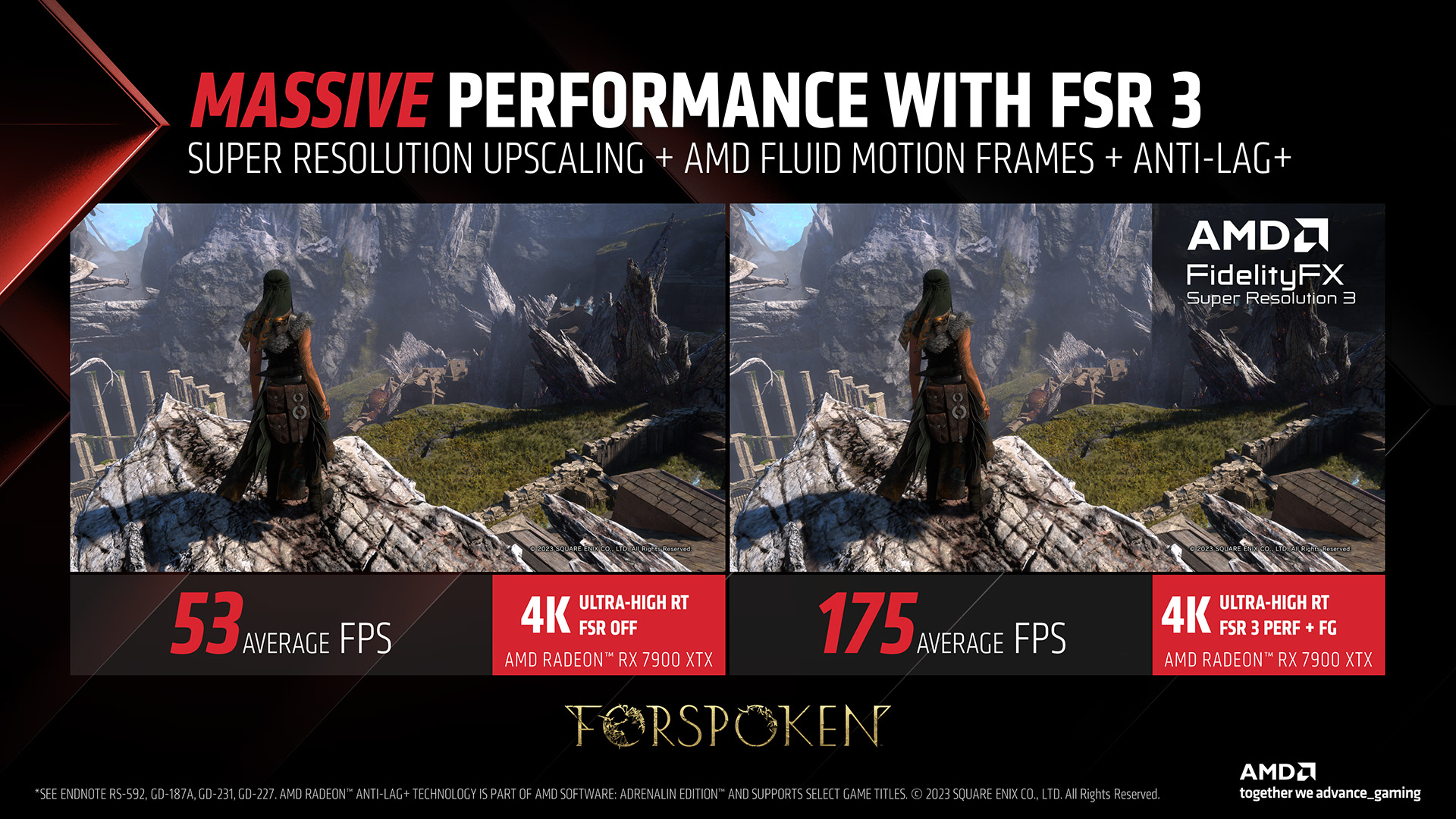
AMD's CTO Mark Papermaster announced in an interview that AMD will be enabling AI-based upscaling on its gaming devices in the future. Papermaster's statement confirms that AMD is potentially reworking its FidelityFX Super Resolution (FSR)-based upscaler to incorporate an AI-based upscaling solution to compete with Nvidia and Intel's DLSS and XeSS technologies.
The interviewer asked what Papermaster wants people to know about the company's focus in 2024, to which he replied:
"Well, this for us is a huge year because we have spent so many years developing our hardware and software capabilities for AI. We've just completed AI enabling our entire portfolio. So, cloud, edge, PCs, our gaming devices, we're enabling our gaming devices to upscale with AI...."
According to Papermaster, it appears AMD is implementing AI-upscaling as a company-wide initiative to get all of its applications "AI-ified" rather than implementing it for the sole purpose of being more competitive in the upscaling space — particularly against Nvidia's DLSS tech. Nonetheless, with the introduction of AMD's XDNA NPUs in its latest Ryzen desktop and mobile APUs, it makes sense that AMD would go this route. Adding AI to all of its software portfolio will help increase the adoption rate of its new NPU-equipped APUs.
That said, AI-based upscaling will still be a huge shift for FSR, representing the next major update for the upscaling technology since FSR 2 came out with temporal upscaling. AI-assisted upscaling should in theory boost FSR's image quality compared to its outgoing FSR 2 implementation right now, potentially enabling FSR to add detail into scenes that was previously not possible. We've learned from Nvidia's DLSS technology that AI-based upscalers can do more than simply upscale resolution. They can also add detail that does not exist, even at native resolution. (This is why some people in the industry say that DLSS looks better than native resolution.)
Currently, AMD's existing FSR upscaling technology relies on a temporal upscaler that utilizes AMD's Edge-Adaptive Spatial Upsampling and Robust Contrast-Adaptive Sharpening. On top of this, FSR also uses a bunch of other functions, such as color space conversions, dithering, and tone mapping to make the upscaled image look as good as possible. Upscaling without any of these techniques will result in a very blurry image.
We don't know how AMD will integrate AI into FSR yet. But there is a possibility it might duplicate what Nvidia has done with its DLSS tech. If this is true, AMD will use a neural network to extrapolate data from in-game frames rendered at substantially higher resolutions than 4K. This data would then be integrated into AMD's Radeon drivers for its FSR AI upscaler to use as a reference point to generate high-quality images in-game.
The big question regarding FSR AI-upscaling is hardware support. If AMD is building its AI-flavored version of FSR for its XDNA NPUs, it might only support Ryzen 8000 series mobile CPUs, Ryzen 8000 series desktop APUs, and its existing Radeon RX 7000 series GPUs (which incorporate AI accelerators.) This would leave much of the existing AMD gaming community left out, particularly the vast majority of desktop users running Ryzen 7000 or older CPUs paired with high-performance Radeon RX 6000 series GPUs or older.
We'll have to wait and see how AMD implements its AI upscaling technology. For all we know, it could just be an alternative upscaler dedicated solely to systems featuring its XDNA NPUs. But on the flip side, it could be a full update to FSR 2 upscaling that works on all system hardware. Hopefully, it is some version of the latter.







